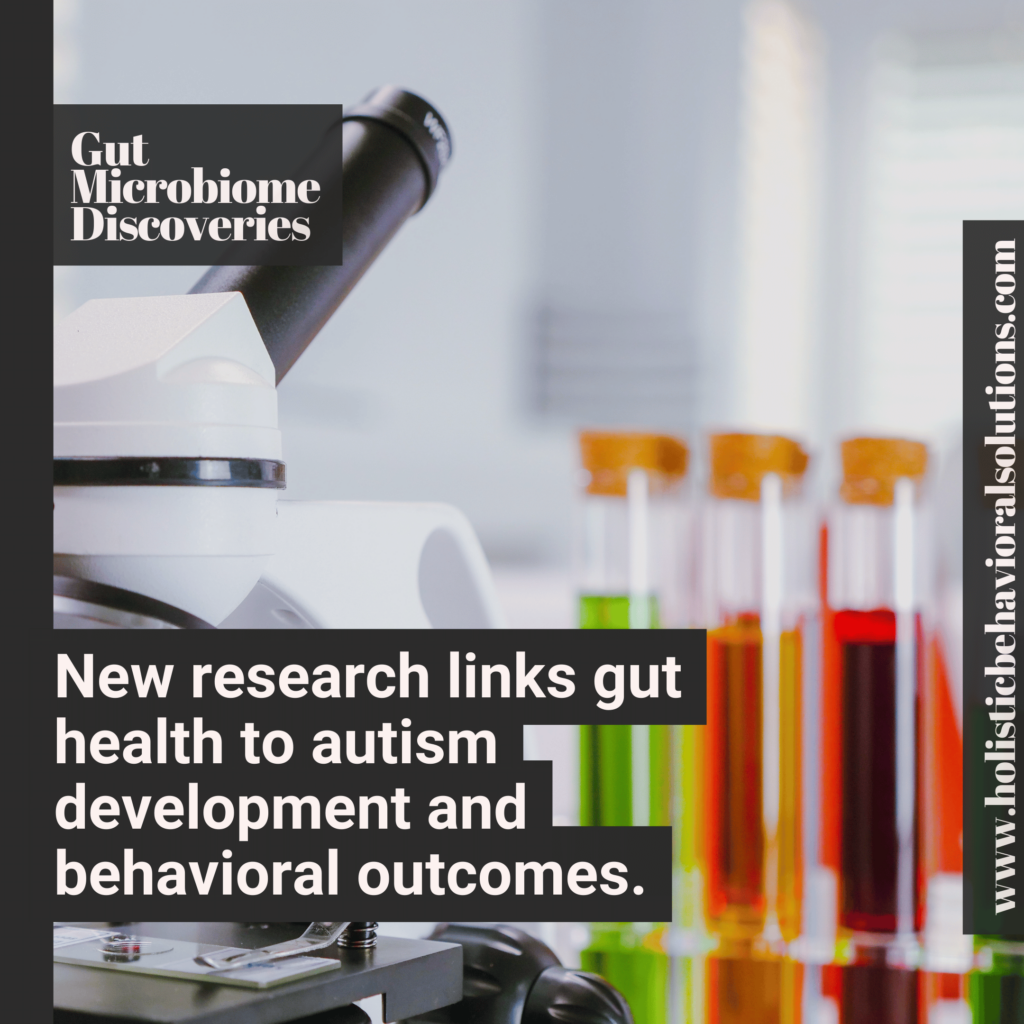
Gut Microbiome and autism, let’s be clear: ASD and Neurodivergence are hereditary. However, research on the gut-brain axis has surged in recent years, offering increased insight into how our microbiome influences mental and neurological health. Among the most promising frontiers in this space is the connection between the gut microbiome and autism spectrum disorder (ASD). New data suggest that the gut may hold key biological markers for earlier, non-invasive ASD diagnosis—changing the diagnostic environment and outcomes for neurodivergent individuals and their families.
The Science Behind the Gut Microbiome and Autism Spectrum Disorder
A study published in Nature Microbiology analyzed metagenomic sequencing of fecal samples from 1,627 children aged 1 to 13. Of these, 24.4% were female. The study compared children with ASD to their neurotypical peers, examining not just bacteria but also archaea, fungi, and viruses—microorganisms that have been largely overlooked in previous research.
Related reading: Gut Microbiome’s Role in Neurodevelopment
Multikingdom Microbiome Disruptions in ASD
The research found significant microbial differences between the two groups, including:
- 14 types of archaea
- 51 types of bacteria
- 7 types of fungi
- 18 types of viruses
- 27 microbial genes
- 12 metabolic pathways
By including multiple biological kingdoms and functional profiles, the study moved far beyond traditional bacteria-focused analyses.
Using AI and Machine Learning to Diagnose Autism
The team deployed machine learning models to distinguish between ASD and neurotypical children based on these microbiome profiles. This is fascinating; When using only single-kingdom data, models reached an area under the curve (AUC) of 0.68–0.87. However, by combining 31 multi-kingdom and functional markers, diagnostic accuracy increased to 0.91 AUC—a level of precision that could rival traditional behavioral assessments. Essentially, the data indicates that biological markers have more accuracy than subjective testing.
Explore more: AI and Autism: Revolutionizing Neurodivergent Diagnostics
Key Metabolic Pathways: Ubiquinol-7 and Thiamine Diphosphate
Among the most critical discoveries were two biosynthesis pathways—ubiquinol-7 and thiamine diphosphate—both found in lower abundance in children with ASD. These pathways are vital for cellular energy and neurological regulation. Their reduced levels suggest a possible link to neurodevelopmental symptoms commonly observed in autism.
Curious about nutrient support? Visit our Holistic Store for supplements designed to support gut and brain health.
Why This Matters: Non-Invasive, Personalized ASD Diagnostics
Traditional ASD diagnosis is heavily reliant on behavioral observation and clinical interviews. While valuable, these approaches can be time-consuming, subjective, and often result in delayed diagnoses—especially for girls and children of color. The ability to use gut microbiota as a biological diagnostic tool could:
- Enable earlier intervention
- Increase diagnostic accuracy
- Personalize treatment based on individual microbiome profiles
Dive deeper: The Promise of Microbiome-Based Personalized Medicine
Implications for Holistic Health and the Autism Community
Many individuals in the ASD community have long used digestive enzymes and holistic health practices to manage symptoms. This new wave of research offers scientific validation for those approaches and could expand access to alternative care models that prioritize internal balance and gut wellness.
If you’re exploring ways to support your or your child’s gut-brain health, consider integrative tools that work with your body, not against it. Our Store includes a curated selection of gut-friendly supplements, enzyme formulas, and functional wellness products trusted by families and clinicians.
Browse our wellness essentials → Holistic Behavioral Store
Ready to Help Others on the Autism Spectrum?
Are you passionate about autism care, neurodiversity, and personalized wellness? We’re growing our team and hiring for clinical and support roles. If you believe in the power of innovation, inclusion, and holistic healing, we’d love to meet you.
Join Our Mission → Explore Careers at Holistic Behavioral Solutions
Final Thoughts
The link between the gut microbiome and autism is no longer just a theory—it’s a research-backed reality. As our understanding of neurodivergence deepens, so does our opportunity to reimagine diagnostic practices, personalize care, and empower families navigating ASD. At Holistic Behavioral Solutions, we’re proud to stand at the intersection of science, compassion, and community.
Stay informed. Stay connected. And always trust your gut.

